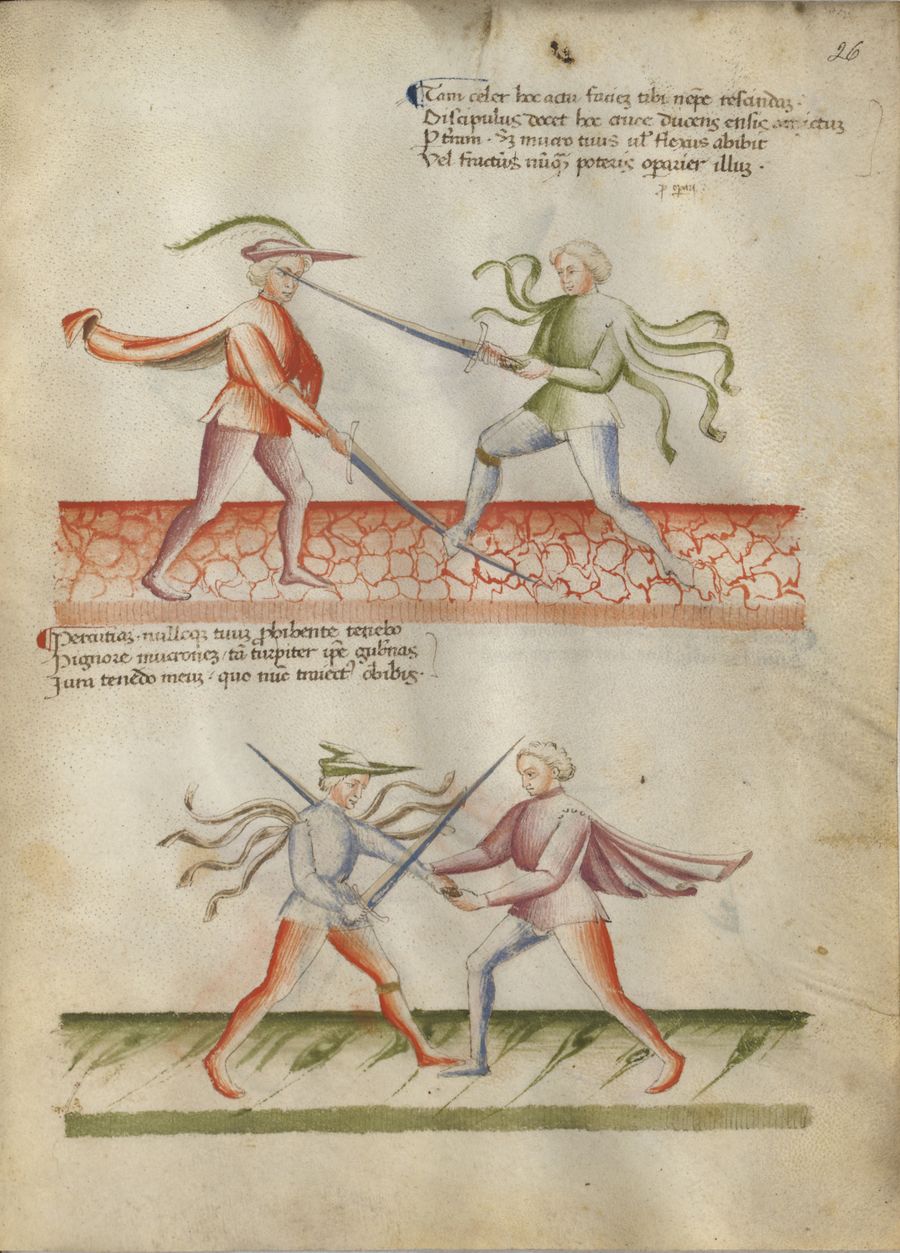|
|
You are not currently logged in. Are you accessing the unsecure (http) portal? Click here to switch to the secure portal. |
Difference between revisions of "User:Kendra Brown/Florius/English MS Latin 11269 26r"
Kendra Brown (talk | contribs) |
Kendra Brown (talk | contribs) |
||
| Line 30: | Line 30: | ||
{{par|r}} I would hit your point and hindered by none I will | {{par|r}} I would hit your point and hindered by none I will | ||
hold the surety / you conduct yourself so disgracefully | hold the surety / you conduct yourself so disgracefully | ||
| − | you must swear an oath by holding<ref> | + | you must swear an oath by holding<ref>Using DuCange's parts of speech for teneo (TENERE, Tenens, Tenedo, Tenementum), we assume that tenedo is the gerundive form. "-edo" is not a verb form included in typical Latin grammar.</ref> mine [my sword] / by which you will now die transfixed. |
</poem> | </poem> | ||
<noinclude>[[file:MS Latin 11269 26r.jpg|900px]]</noinclude> | <noinclude>[[file:MS Latin 11269 26r.jpg|900px]]</noinclude> | ||
Revision as of 20:32, 19 December 2023
Latin 26r
- ¶ Tam celer hoc actu faciem tibi nempe rescindam.
Discipulus docet hoc cruce ducens ensis amictum
Per terram. Sed mucro tuus vel flexus abibit
Vel fractus numquam poteris operarier[1] illum.
¶ Percutiam nulloque tuum prohibente tenebo
Pignore mucronem / tam turpiter ipse gubernas
Jura tenedo meum. quo nunc traiectus obibis.
Italian
|
From the crossing at the ground which the Scholar makes |
[21a-c] Per lo incrosar de terra che fa lo scolar |
|
Because of your hilt which I hold in my hand, |
[22a-b] Per lo mantiger[!] tuo che in man io tegno |
English 26r
¶ Nevertheless, I, the Swift One, would truly cut out your very own face using this act.[2]
The student teaches this: leading to the act of cloaking the sword in the ground from the location of the cross[3].
But your point will either go away bent
or be broken. You can never again use that [sword].
¶ I would hit your point and hindered by none I will
hold the surety / you conduct yourself so disgracefully
you must swear an oath by holding[4] mine [my sword] / by which you will now die transfixed.
- ↑ Added later: "pro operarj".
- ↑ celer can either be an adjective or a verb, leading to two possible readings. celer as an adjective is more common and appears elsewhere in this text. celer as a verb links to the act of cloaking, amictum, in the next line. Here is our alternate reading of the first line: Nevertheless I would be shielded [and] truly cut out your very own face using this act.
- ↑ cruce is locative case, which the translation reflects
- ↑ Using DuCange's parts of speech for teneo (TENERE, Tenens, Tenedo, Tenementum), we assume that tenedo is the gerundive form. "-edo" is not a verb form included in typical Latin grammar.

